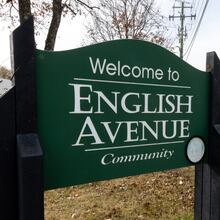A free education and resource summit to help veterans and military members will be held on March 24 at Chattahoochee Technical College in Acworth.
In partnership with more than 20 supporting agencies, the free summit will last from 8:30 a.m. to 1 p.m. March 24 at CTC's North Metro Campus (Building D), 5198 Ross Road, Acworth.
This summit is designed to provide both resources and awareness information to transitioning military members and veterans.
Welcome are guardsmen and reservists from the Air Force, Army, Navy and Marines at Dobbins Air Reserve Base, Chattahoochee Tech's current student enrollment of more than 700 veterans or veteran family members and any other veterans.
"Veteran transition training, or taking their combat boots off, is beneficial because we need to be serving those who have served us so well. For a veteran who is leaving the military, many times they feel alone, without direction and uncertain of their capabilities to acclimate or adjust to the civilian environment," said CTC Communication and Veteran Services Coordinator Barry Munday.
The free summit will bring together more than 20 resources to support veterans and their family members who may be struggling to adapt to civilian life.
At the event, military and veteran personnel may speak with representatives from numerous support services to gain a better insight into what resources are available.
A partial list of vendors includes Chattahoochee Technical College Human Resources Department, Georgia Vocational Rehab Agency, Georgia Department of Labor, Cobb Works, Technical College System of Georgia Office of Military Affairs, NCESGR/Emory Veterans Outreach, Marietta Veteran Center, Workforce Investment Opportunities Act, Office of Adult Mental Health and Kennesaw State University.
The guest speaker will be retired Major General Maria Britt, KSU's associate vice president for operations.
By providing the summit, Munday said the hope is to help transitioning military and veteran personnel not only academically but also emotionally and psychologically through local veteran support organizations.
About the Author





